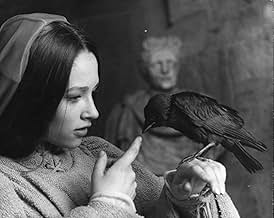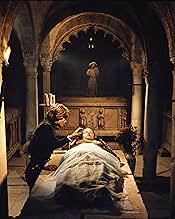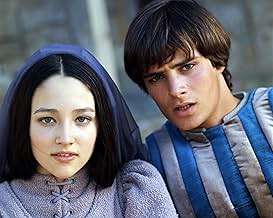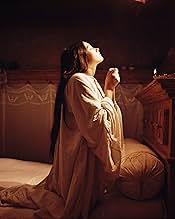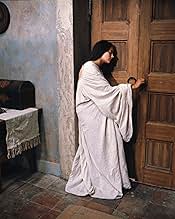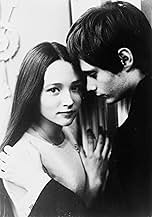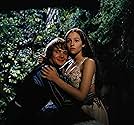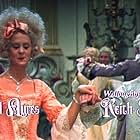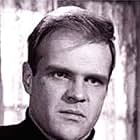When two young members of feuding families meet, forbidden love ensues.When two young members of feuding families meet, forbidden love ensues.When two young members of feuding families meet, forbidden love ensues.
- Won 2 Oscars
- 16 wins & 16 nominations total
Featured reviews
Truly one of the best films ever created of Shakespeare's plays. While in today's MTV - short attention span world this film may seem boring, in 1968 this film was revolutionary (I am not prejudice since I am in the MTV generation). Until this time R&J had been played by much older actors, since it was assumed they could understand Shakespeare's language. In 1968, Franco Z. gives us actors the actual age of Shakespeare's lead characters and they can act. Add to that stunning sets, costumes and music, the result is a moving artistic creation. The performances are superb, my personal favorites being Michael York's Tybalt and Milo O'Shea's the Friar. The language can be difficult and the action plotting, but one has to have patience when devoting attention to Shakespeare's plays, acted or read. Enjoy!
There were not many directors like Zeffirelli around during those golden years -sixties and seventies -of the Italian cinema.Because he was not part of the champagne socialists,because he made movies completely devoid of social concerns,he was generally dismissed by the European critics (and his fellow colleagues) as non-hip and reactionary. When you see these movies today,you realize how much they have worn well,and how much his detractors were wrong:Zeffirelli has never tried to change the world,but he has given beautiful movies which have stood the test of time quite well,perhaps because they are timeless.Even an epic and absorbing -and diametrically opposite to Zeffirelli's cinema - political work like Bertolucci's "Novecento" (1976) displays cheesy gauchism so trendy before the eighties in Europa .
This is the second of the three Zeffirelli screen adaptations of Shakespeare -as a matter of interest,the others are "taming of the shrew"(1967 with E Taylor and R Burton) and "Hamlet" (1990 with M.Gibson and G.Close)-and it 's probably the best:Zeffirelli's genius was to cast actors (about) the age of the heroes as the leads.And Leonard Whiting and Olivia Hussey,both very beautiful,make up for their lack of experience with their youth,their innocence and the intensity of their looks.They are far better than Leonardo Di Caprio and Claire Danes in the drag queens cum west side story Luhrmann's 1996 version.Besides they get strong support from dark-haired Mickael York as Tybalt and John MCEnnery as Mercutio.The colors are,as always in a Zephirelli movie (see taming,and his made-for-TV Jesus)dazzling.Two scenes stand out:the ball and the lovers death in the Capulet tomb.
Filmed on location in Verona,we never have the feeling that we are watching filmed stage production,not a small feat.This is the definitive screen version of the Elizabethan classic.Sir Laurence Olivier is the narrator.
This is the second of the three Zeffirelli screen adaptations of Shakespeare -as a matter of interest,the others are "taming of the shrew"(1967 with E Taylor and R Burton) and "Hamlet" (1990 with M.Gibson and G.Close)-and it 's probably the best:Zeffirelli's genius was to cast actors (about) the age of the heroes as the leads.And Leonard Whiting and Olivia Hussey,both very beautiful,make up for their lack of experience with their youth,their innocence and the intensity of their looks.They are far better than Leonardo Di Caprio and Claire Danes in the drag queens cum west side story Luhrmann's 1996 version.Besides they get strong support from dark-haired Mickael York as Tybalt and John MCEnnery as Mercutio.The colors are,as always in a Zephirelli movie (see taming,and his made-for-TV Jesus)dazzling.Two scenes stand out:the ball and the lovers death in the Capulet tomb.
Filmed on location in Verona,we never have the feeling that we are watching filmed stage production,not a small feat.This is the definitive screen version of the Elizabethan classic.Sir Laurence Olivier is the narrator.
10Philaura
Exquisite. The beauty, the innocence, the undeniable - all consuming fire of first love portrayed to the hilt. Juliet's delicate grace was breathtaking. I was totally convinced by this young acting team that they were as in love as is humanly possible. One can smell and taste 14-15th century Italy while following the locations. The performers, everyone, are as genuinely sincere in their humor and passions as one could possible imagine, bringing to life Shakespere's words like I've never seen before.
I cry every time I see it - all the way through. Mr. Zeffrelli, you are the best.
I cry every time I see it - all the way through. Mr. Zeffrelli, you are the best.
To my way of thinking, this film should be considered when people discuss the greatest movies of all time. Every scene, practically every frame of this movie is brilliant. Director Zeffirelli went against the ancient practice of using older actors in the title roles, and the performances he elicits from teenagers Whiting and Hussey is amazing. Although he trims the dialog heavily in places (Romeo says, "But soft, what light through yonder window breaks?"- and leaves it at that) his version captures all the passion of Shakespeare's play magnificently.
The scenes at the Capulet's ball at which the two young lovers meet are about the greatest I've ever seen on screen. The famous balcony scene avoids cliches altogether and makes others pale by comparison. The Queen Mab speech, the fight, and the scene in the tomb are all exquisite highlights of this film. Even the dubbing for the Italian actor's voices and of the crowd noise is superior. It is amazing to me that an Italian could be so sensitively in tune with one of the English language's most sublime works.
Zeffirelli wanted to make a movie that spoke to youth and he succeeded, to put it very mildly. If school systems were smart, they'd pack up their freshmen and sophomores on buses every year, drive them to a local theatre and show them this movie. I can't think of a better investment in young people's education that could be made. It worked for me.
The scenes at the Capulet's ball at which the two young lovers meet are about the greatest I've ever seen on screen. The famous balcony scene avoids cliches altogether and makes others pale by comparison. The Queen Mab speech, the fight, and the scene in the tomb are all exquisite highlights of this film. Even the dubbing for the Italian actor's voices and of the crowd noise is superior. It is amazing to me that an Italian could be so sensitively in tune with one of the English language's most sublime works.
Zeffirelli wanted to make a movie that spoke to youth and he succeeded, to put it very mildly. If school systems were smart, they'd pack up their freshmen and sophomores on buses every year, drive them to a local theatre and show them this movie. I can't think of a better investment in young people's education that could be made. It worked for me.
I saw Romeo and Juliet at the Odeon Leicester Square, the day after the Royal Premier and from that day I was hooked on this film. I went back three times with different sets of friends just to watch it again and each time I enjoyed it more. Now owning it on DVD when I want to just feel good about films I watch it!
So much has already been written about the youth of the two young unknown stars and the chemistry that they had on screen that I don't need to repeat it now. However the key to this film's great success was that it was visually stunning, Zefferelli is the master of using colour, setting and costume to great effect. He was so clever in his casting, not just with the very handsome young Leonard Whiting who at the time when I was only 18 myself I thought was gorgeous but also the innocence of an immature Hussey was perfect. A master stroke was Milo O'Shea as Friar Lawrence, never ever has there been a better role for this talented by rarely seen Irish actor.
It's pointless complaining that the text is cut, by leaving out Romeo killing Paris and also the apothecary selling Romeo the poison in no way detracts from the overall imagery and beauty of Shakespeare's text. To have made the film using the whole text would have been too difficult and perhaps Zefferelli did want to portray Romeo as a little nicer than he actually was. In truth he was a fickle young man as all teenage boys can be and also prone to an amount of passionate violence so prevalent in adolescence. But this was Italy in Tudor times when life was cheap and the willingness to reach for the sword was as it should be.Shakespeare understood human nature better than anyone and that's why all his plays show so much insight into the human spirit.
Zefferelli balanced the film perfectly, nothing was overdone. He combined the tragedy with the humour as well as the love story by casting the right actor for each role and even if some of them faded into oblivium later, for this film they were all perfect. I never want to see another version. Baz Luhrmann's pales in comparison and thats not a bad film.
Come the Oscars I waited with baited breath having convinced myself that it would get best film - I was so disappointed!. It did collect Best Costume and I think Best Cinematography, but what a travesty, especially when the film that did win that year was not even in the same league and is hardly ever remembered. It's always very difficult to succeed with Shakespeare on the big screen but this version of Romeo and Juliet had it all. Only Kenneth Brannagh's mammoth production of the uncut version of Hamlet comes anywhere near this wonderful film.
How Nino Roto's soundtrack also missed out on an Oscar I will never understand. Footnote: Luciano Pavarotti has recorded the main love theme and it's called Ai giochi addio - it is so beautiful it will make you cry as you remember the film.
So much has already been written about the youth of the two young unknown stars and the chemistry that they had on screen that I don't need to repeat it now. However the key to this film's great success was that it was visually stunning, Zefferelli is the master of using colour, setting and costume to great effect. He was so clever in his casting, not just with the very handsome young Leonard Whiting who at the time when I was only 18 myself I thought was gorgeous but also the innocence of an immature Hussey was perfect. A master stroke was Milo O'Shea as Friar Lawrence, never ever has there been a better role for this talented by rarely seen Irish actor.
It's pointless complaining that the text is cut, by leaving out Romeo killing Paris and also the apothecary selling Romeo the poison in no way detracts from the overall imagery and beauty of Shakespeare's text. To have made the film using the whole text would have been too difficult and perhaps Zefferelli did want to portray Romeo as a little nicer than he actually was. In truth he was a fickle young man as all teenage boys can be and also prone to an amount of passionate violence so prevalent in adolescence. But this was Italy in Tudor times when life was cheap and the willingness to reach for the sword was as it should be.Shakespeare understood human nature better than anyone and that's why all his plays show so much insight into the human spirit.
Zefferelli balanced the film perfectly, nothing was overdone. He combined the tragedy with the humour as well as the love story by casting the right actor for each role and even if some of them faded into oblivium later, for this film they were all perfect. I never want to see another version. Baz Luhrmann's pales in comparison and thats not a bad film.
Come the Oscars I waited with baited breath having convinced myself that it would get best film - I was so disappointed!. It did collect Best Costume and I think Best Cinematography, but what a travesty, especially when the film that did win that year was not even in the same league and is hardly ever remembered. It's always very difficult to succeed with Shakespeare on the big screen but this version of Romeo and Juliet had it all. Only Kenneth Brannagh's mammoth production of the uncut version of Hamlet comes anywhere near this wonderful film.
How Nino Roto's soundtrack also missed out on an Oscar I will never understand. Footnote: Luciano Pavarotti has recorded the main love theme and it's called Ai giochi addio - it is so beautiful it will make you cry as you remember the film.
Did you know
- TriviaSir Laurence Olivier agreed to play the uncredited role of the narrator, because he was so impressed with Zeffirelli's work for the National Theatre of Great Britain, of which Olivier was director at the time. Not only was Olivier the narrator, but as Franco Zeffirelli has also confirmed, he dubbed Antonio Pierfederici's voice (due to the actor's heavy Italian accent) as well as lending his voice to other anonymous characters. He did it all for the love of William Shakespeare, and didn't accept any payment.
- GoofsWhen Romeo and Juliet's bodies are laid out in front of the ruler, Romeo takes a deep breath.
- Alternate versionsIn the film's original release, and on DVD, the "End Titles" music continues playing on a black screen after the closing credits have ended, much as "Exit Music" used to do in roadshow releases of films. As currently (2009) shown on cable TV, however, there is an edit on the soundtrack (not on the picture) during the closing credits, so that the music ends exactly at the same time that the visual portion of the film does.
- ConnectionsEdited into The Kid Stays in the Picture (2002)
- How long is Romeo and Juliet?Powered by Alexa
Details
- Release date
- Countries of origin
- Languages
- Also known as
- Romeo y Julieta
- Filming locations
- Pienza, Siena, Tuscany, Italy(Piazza Pio II: some shots of the street brawl)
- Production companies
- See more company credits at IMDbPro
Box office
- Budget
- $850,000 (estimated)
- Gross worldwide
- $6,292
- Runtime2 hours 18 minutes
- Sound mix
- Aspect ratio
- 1.85 : 1
Contribute to this page
Suggest an edit or add missing content



